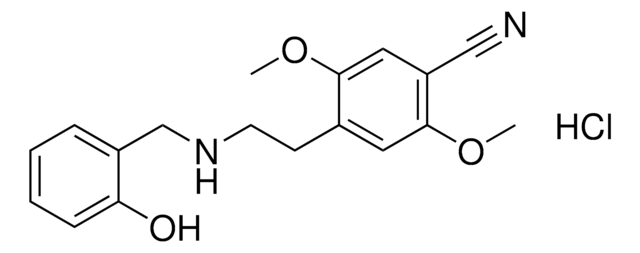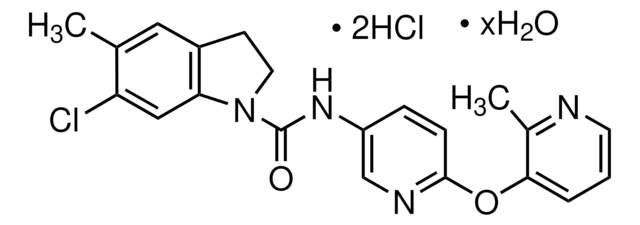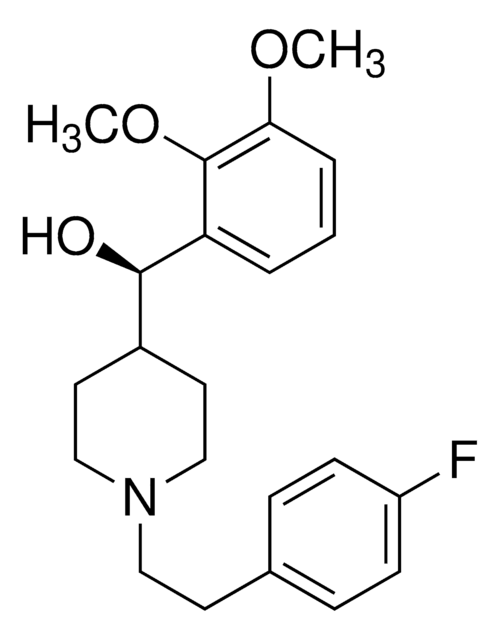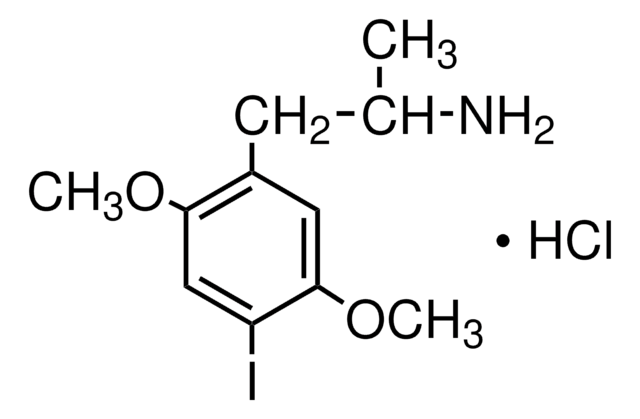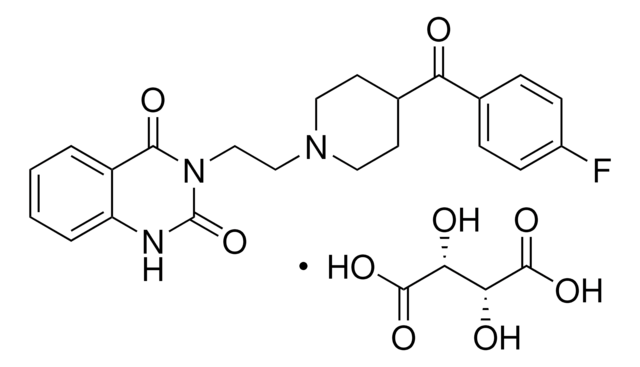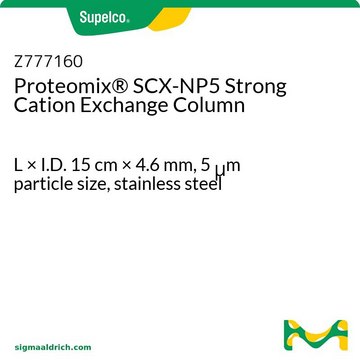SML0115
MDL 11939
≥98% (HPLC)
Sinónimos:
α-Phenyl-1-(2-phenylethyl)-4-piperidinemethanol, Glemanserin, MDL11939
About This Item
Productos recomendados
Nivel de calidad
Ensayo
≥98% (HPLC)
Formulario
powder
color
white to tan
solubilidad
DMSO: ≥8 mg/mL
emisor
Sanofi Aventis
temp. de almacenamiento
2-8°C
cadena SMILES
OC(C1CCN(CCC2=CC=CC=C2)CC1)C3=CC=CC=C3
InChI
1S/C21H27NO/c23-21(19-11-5-2-6-12-19)20-13-16-22(17-14-20)15-7-10-18-8-3-1-4-9-18/h1-6,8-9,11-12,20-21,23H,7,10,13-17H2
Clave InChI
CTDVLAJTGZQELM-UHFFFAOYSA-N
Acciones bioquímicas o fisiológicas
Características y beneficios
Palabra de señalización
Warning
Frases de peligro
Consejos de prudencia
Clasificaciones de peligro
Aquatic Acute 1
Código de clase de almacenamiento
11 - Combustible Solids
Clase de riesgo para el agua (WGK)
WGK 3
Punto de inflamabilidad (°F)
Not applicable
Punto de inflamabilidad (°C)
Not applicable
Elija entre una de las versiones más recientes:
Certificados de análisis (COA)
¿No ve la versión correcta?
Si necesita una versión concreta, puede buscar un certificado específico por el número de lote.
¿Ya tiene este producto?
Encuentre la documentación para los productos que ha comprado recientemente en la Biblioteca de documentos.
Nuestro equipo de científicos tiene experiencia en todas las áreas de investigación: Ciencias de la vida, Ciencia de los materiales, Síntesis química, Cromatografía, Analítica y muchas otras.
Póngase en contacto con el Servicio técnico